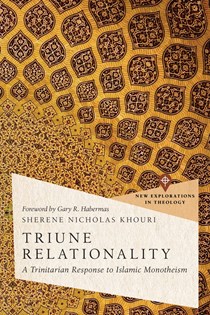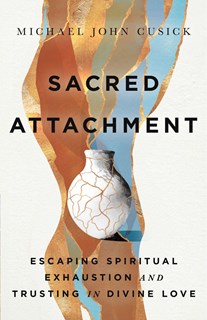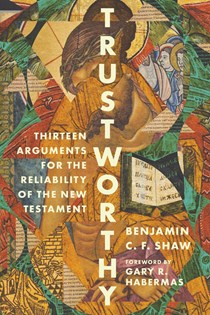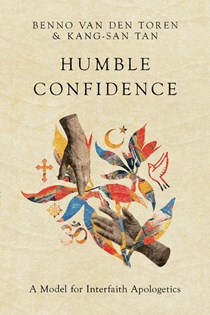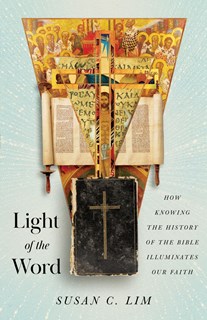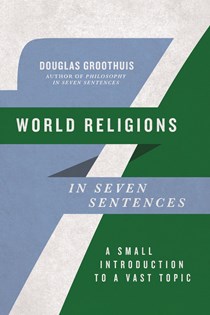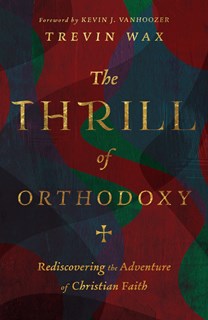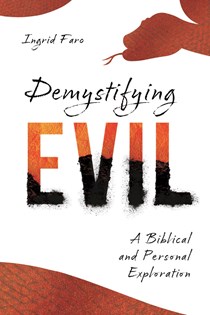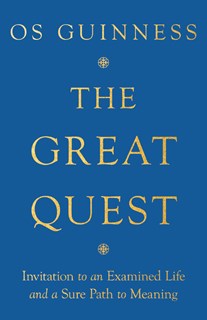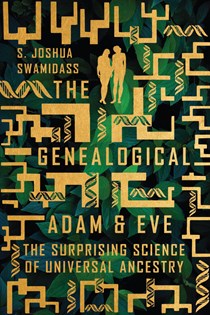Apologetics
-
Triune Relationality
A Trinitarian Response to Islamic Monotheism
New Explorations in Theology
by Sherene Nicholas Khouri
Foreword by Gary R. HabermasFor centuries, Christians and Muslims have engaged each other in debate and critique. A key area of disagreement is the nature of God: Is God a Trinity or absolutely one? To promote interfaith dialogue, Christians must understand the history of the conversation and also articulate the doctrine of the Trinity in reasonable, compelling ways.
In this New Explorations in Theology ...
-
Sacred Attachment
Escaping Spiritual Exhaustion and Trusting in Divine Love
by Michael John Cusick
What do you do when the gap between what you believe and what you experience feels insurmountable? Where do you turn when trauma leaves you feeling lost, ashamed, and exhausted, spinning in spiritual uncertainty but still longing for relationship with God?
Michael John Cusick voices the questions and contradictions that are inherently part of living an authentic spiritual ...
-
Trustworthy
Thirteen Arguments for the Reliability of the New Testament
by Benjamin Shaw
Foreword by Gary R. HabermasHow do we know the New Testament is reliable?
It matters—but discussions on whether the New Testament is historically accurate can be tedious and overwhelming. We want to be confident that the reports in the New Testament are true and dependable, but scholarly discussions around the authenticity of the events recounted in Scripture can be challenging to navigate.
Dr. ...
-
Humble Confidence
A Model for Interfaith Apologetics
by Benno van den Toren and Kang-San Tan
Christianity Today Award of Merit
Today's cosmopolitan, multicultural, and multifaith environments call for new approaches to apologetics. The world still needs the good news of Jesus Christ, but to relate the transcultural gospel to diverse and ever-changing contexts, we must free Christian apologetics from dominant Western habits of mind ill-suited ...
-
Light of the Word
How Knowing the History of the Bible Illuminates Our Faith
by Susan C. Lim
While Christians generally acknowledge that the Bible is God's Word, many of us lack robust confidence in the reality of its trustworthiness. We may not be sure if we really believe what we read. But the more we understand how Scripture came to be, the more we discover its power and truth.
Historian Susan Lim unpacks how the history of the Bible bolsters our faith and anchors ...
-
World Religions in Seven Sentences
A Small Introduction to a Vast Topic
Introductions in Seven Sentences
by Douglas Groothuis
Understanding the beliefs and practices of other faiths is essential not just to the task of interreligious dialogue, but also to grasping one's own faith.
In this brief volume in IVP Academic's Introductions in Seven Sentences, philosopher Douglas Groothuis creatively uses a single sentence representing each of several world religions as a way to open readers to their depth ...
-
The Thrill of Orthodoxy
Rediscovering the Adventure of Christian Faith
by Trevin Wax
Foreword by Kevin J. VanhoozerChristianity Today Book Award of Merit—Popular Theology
The Gospel Coaltion Award of Distinction—Popular Theology
Every generation faces the temptation to wander from orthodoxy—to seek out the jolt that comes with false teaching, and to drift with cultural currents. And so every generation must be awakened again to the thrill ...
-
Demystifying Evil
A Biblical and Personal Exploration
by Ingrid Faro
Foreword by Heather Davediuk GingrichThe evil that afflicts our lives often leaves us confused and directionless, wounded and powerless. How should we respond to evil's power to assault us? How can we understand God's work in a world that seems all too often to be permeated with evil?
Narrating her own wrestling with evil as well as engaging in biblical and philosophical analysis, biblical scholar Ingrid Faro ...
-
The Great Quest
Invitation to an Examined Life and a Sure Path to Meaning
by Os Guinness
"The unexamined life is not worth living." —Socrates What is life all about? What are we here for? Is there any meaning or purpose to our existence? Thinkers throughout the centuries have pondered these questions. While the distractions of the modern world prevent many from grappling seriously with such matters, the truth is that humans cannot live without meaning any more than ...
-
The Genealogical Adam and Eve
The Surprising Science of Universal Ancestry
by S. Joshua Swamidass
Evolutionary science teaches that humans arose as a population, sharing common ancestors with other animals. Most readers of the book of Genesis in the past understood all humans descended from Adam and Eve, a couple specially created by God. These two teachings seem contradictory, but is that necessarily so? In the fractured conversation of human origins, can new insight guide us to solid ground ...


